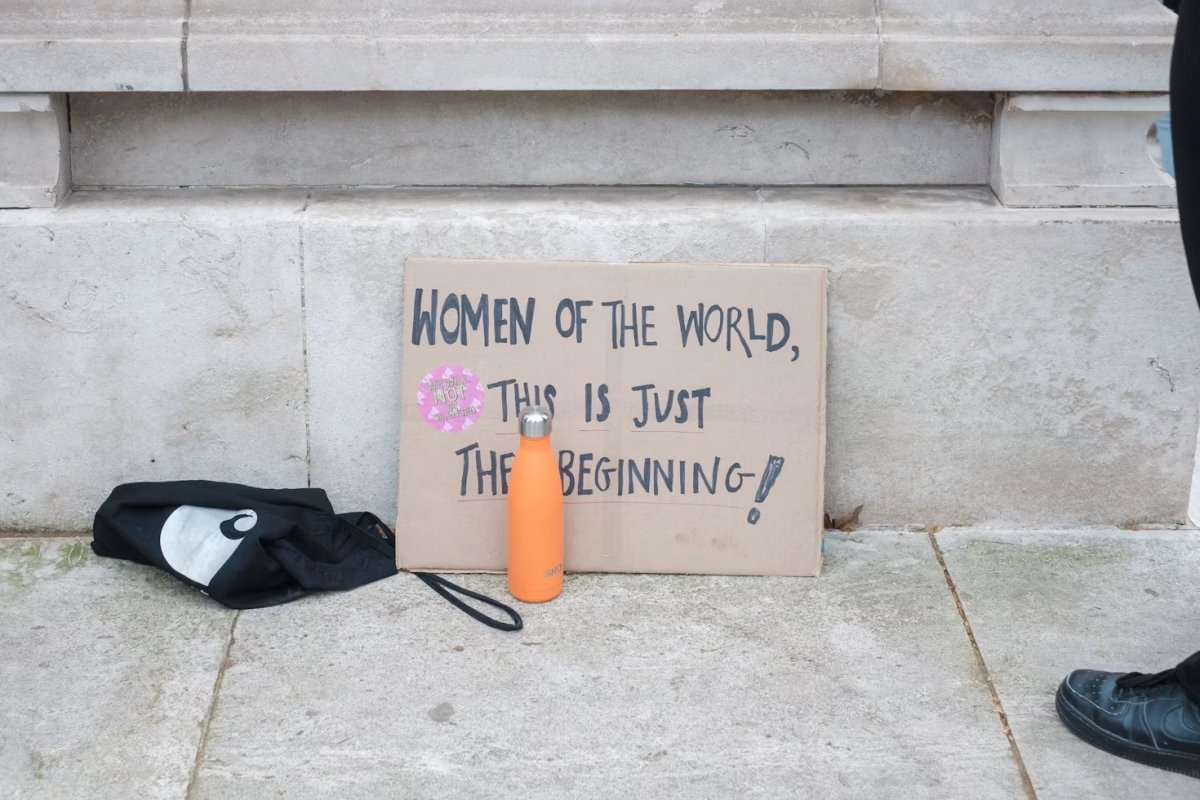With the fall semester ending, students look forward to the break, the upcoming holidays, and even the new beginnings of the forthcoming spring semester. New beginnings are a common topic during the winter season of hope and reconciliation, togetherness and rebirth. Anything is possible, and where there’s a will, there’s a way. All the holiday movies emphasize these massive breakthroughs, typically showing a character concluding that a change is needed; But what is a breakthrough without a plan for how to pursue it? A promise without action is merely a lie. If someone says they want change but never take the first step, change will never happen, leaving them forever in a cycle of meaningless goals, wanting and never attaining.
Every year, more and more people make New Year’s resolutions, but by the time the end of January rolls around, all hopes and aspirations are out the door. Typically, this leaves people where they started or even a few steps back from where they were. So, what happens, and how can this cycle be broken?
Backtracking, New Year resolutions are goals and promises people make to themselves at the start of the year to aim for self-improvement in the coming year.
Common resolutions include,
1) Losing weight or working out more
2) ditching bad habits
3) learning something new, for example, learning a new language
4) experiencing something new
5) increasing spirituality, etc.
A resolution is just any goal that somebody can make for a person to work on bettering themselves. Though not always the case for the general population, a resolution should consist of an individual putting their foot in the ground and declaring “This is it. I’m making a change; I won’t turn back to my bad habit” or whatever said person is repenting of. Yet, the matter has been that people have started creating January and February resolutions as second and third chances before inevitably giving up altogether on their dreams. Having the same resolution year after year because “this time will be different,” even though the same measly measures are taken, with no guarantee of change. So, going back to the previous question, what happens, why is this the case?
Numerous challenges occur when people try to rewire their brains to do something new, and some people need discipline to stay accountable and take the vital steps required to reach their goals. Junior Hilary Pineda states, “I have had New Year’s resolutions before; I think what went wrong was not staying consistent in trying to achieve it.” When trying to reach goals, you never want to stand still; you want to take steps continuously striding towards said goal. People can do so by having others keep them accountable to check in and see if progress has been made. Another beneficial action somebody can take is planning what steps need to happen and making specific plans for reaching them. Say, for example, a student’s goal for 2025 is to get their driver’s license. Sure, they could catwalk into the DMV on their 16th birthday and hope for the best. However, there are more solid, fool-proof options to prevent showing up to the test oblivious. A knowledgeable choice would be having a game plan, studying how to decipher road signs, practicing driving, learning the things you don’t know, etc. Small goals make the big goal attainable.
Furthermore, comedian Kevin Hart has mentioned his struggle with keeping resolutions: he tends to set unrealistic standards for himself. Yes, while small goals can help big goals come into grasp, some things are too high to reach for now. If a student’s dream is to get into an Ivy League school, but they constantly get an F after an F, the primary goal should be something along the lines of “My resolution this year is to get my grades up.” People must set realistic goals to avoid being disappointed and upset with themselves. Good change is possible; just don’t shoot for the stars because you might end up flying too close to the sun.
According to Autum Smith, her resolution died when unsuspecting circumstances arose, leading her to lose sight of her goal and ultimately leave it in the dirt. When pursuing any goal, challenges will arise, ready to tear you down; the way to avoid defeat is to press on and focus on the end goal: ALWAYS FOCUS ON THE END GOAL.
Other things that can get in the way of you achieving your goals include…
1) changing old habits. In this case, the individual ultimately needs to choose: “Do I want my habit or my goal better?”
2) Getting in the way of yourself. Somebody could break this down into the simplest terms: someone can try and probably end up getting what they desire or not try and never get what they want
3) “All-or-nothing thinking: Change happens with consistency, not perfection.” 6 Tips to Keep Your New Year’s Resolutions on Track – GoodRx. Days when people feel like they fall short are expected and even guaranteed when endeavoring to fulfill a resolution. However, people tend to allow this to trip them up so badly that they give up altogether.
Overall, success is possible and feasible. All that is required is the willpower to follow through. By utilizing the advice mentioned above, individuals have the potential to triumph and witness the completion of their resolutions. Don’t give up, and know the only thing holding you back is you; no matter what you are moving through, you have the power to persevere. Just keep holding on and the results will be worth it.

























